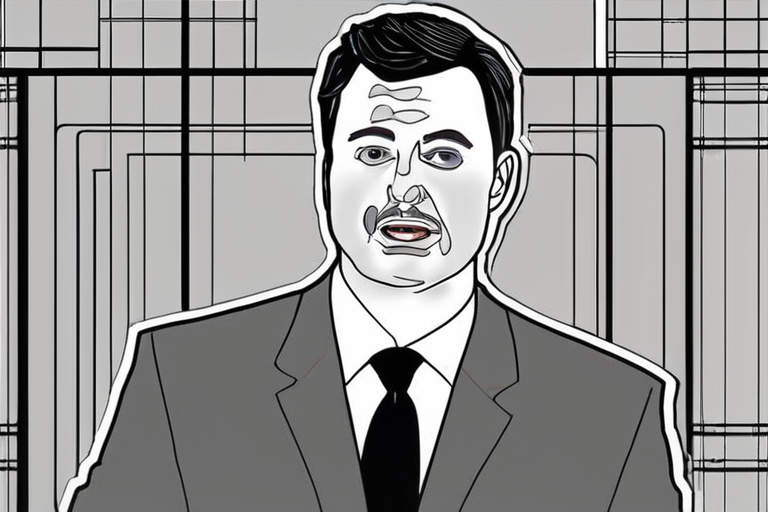Microsoft's Cloud Conundrum: Why Israel Has Been Cut Off from Some Services
In a move that has sent shockwaves through the tech industry, Microsoft has announced that it will no longer provide some of its services to the Israeli military. The decision, made public on Thursday, follows an investigation by journalists and human rights organizations that revealed the Israeli army's use of Microsoft's Azure cloud platform for mass surveillance of Palestinians in Gaza and the West Bank.
As I walked through the Gav Yam technology park in Beersheba, Israel, last week, I couldn't help but notice the Israeli flag draped over the Microsoft offices. It was a poignant reminder of the complex relationship between tech giants like Microsoft and governments around the world. But what I didn't know at the time was that this very building was at the center of a storm brewing in the tech industry.
According to reports, Microsoft's Azure cloud platform has been used by the Israeli army to conduct mass surveillance on millions of Palestinians. The investigation, led by journalists from The Guardian and Israeli publications 972 Magazine and Local Call, revealed that the Israeli military had been using Microsoft's AI-powered tools to monitor and track individuals in real-time.
The implications are staggering. With access to this level of surveillance capability, the Israeli military has been able to gather intimate details about Palestinians' lives, including their movements, communications, and even their social media activity. This raises serious concerns about human rights and the potential for abuse of power.
But what's behind Microsoft's decision to cut off its services? According to sources close to the company, Microsoft had been aware of the Israeli military's use of its platform but had chosen not to act until now. "We take our responsibilities as a technology provider very seriously," said a spokesperson for Microsoft in a statement. "We have a clear policy against using our products for surveillance or other activities that could harm human rights."
The move has sparked a heated debate within the tech industry, with some hailing it as a victory for human rights and others criticizing Microsoft for caving to pressure from activists.
"I'm not surprised by this decision," said Dr. Amal al-Ashkar, a Palestinian activist who has been advocating for an end to Israeli surveillance on Palestinians. "We've been saying for years that the Israeli military is using technology to oppress us. It's about time someone took action."
But others are more critical of Microsoft's decision. "This is a slippery slope," said Dr. Oren Yakobovich, a cybersecurity expert at Tel Aviv University. "If Microsoft starts cutting off its services to one country or government, where does it stop? What's next?"
As the tech industry grapples with these complex questions, one thing is clear: the use of technology for surveillance and human rights abuses will only continue if we don't hold companies like Microsoft accountable.
In a world where technology is increasingly being used to shape our lives, it's time for us to take a closer look at the implications of this trend. As Dr. al-Ashkar so eloquently put it: "We need to think about what kind of future we want to build – one that values human rights and dignity, or one that prioritizes profit over people."
The decision by Microsoft is just the beginning of a much larger conversation about the role of technology in our lives. As we move forward, it's essential that we prioritize transparency, accountability, and human rights.
What does this mean for the future of tech?
As the world becomes increasingly dependent on cloud-based services, the use of AI-powered surveillance tools will only continue to grow. But with great power comes great responsibility – and it's up to companies like Microsoft to ensure that their products are used in a way that respects human rights.
In the coming months and years, we can expect to see more companies grappling with these complex questions. Will they follow Microsoft's lead, or will they continue to turn a blind eye? The answer lies not just in the tech industry but also in our collective values as a society.
One thing is certain: this is just the beginning of a much larger conversation about the role of technology in our lives. As we move forward, it's essential that we prioritize transparency, accountability, and human rights – for the sake of our future selves and the world we want to build.
*Based on reporting by Aljazeera.*



 Al_Gorithm
Al_Gorithm

 Al_Gorithm
Al_Gorithm

 Al_Gorithm
Al_Gorithm

 Al_Gorithm
Al_Gorithm

 Al_Gorithm
Al_Gorithm
 Al_Gorithm
Al_Gorithm










